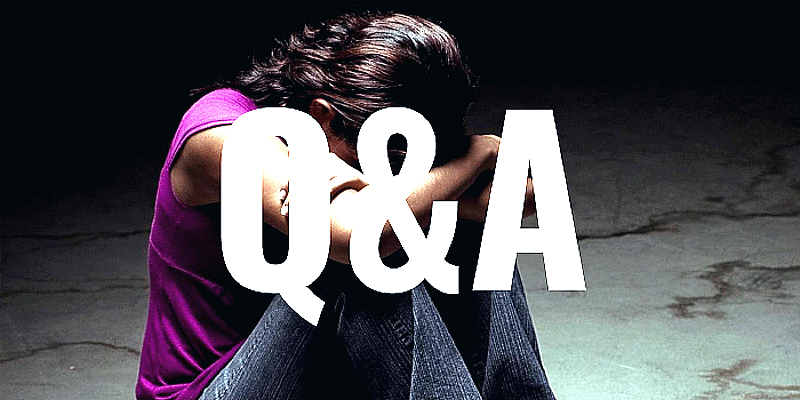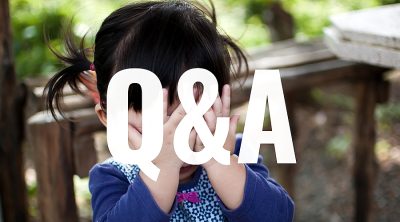
Q: How should I handle my adolescent’s emotional instability? In particular, how can I tell the difference between ‘normal’ teenage moodiness and serious clinical depression?
My teen seems to have more “downs” than “ups.” Is this a normal part of adolescence, or should I be concerned?
A: You’re absolutely right to point out that teens can be moody. That’s partly due to the physiological changes they’re experiencing as an aspect of the maturation process.
To a certain extent, then a reasonable degree of vacillation between emotional “ups” and “downs” can be considered a normal part of life during the teen years.
Nevertheless, there is an important distinction to be made between adolescent mood swings and bona fide clinical depression.
Genuine depression is a deeper and more serious problem. That’s not to mention that it can be passed down from one generation to the next.
So in evaluating your teen’s situation, it’s important to have a handle on your family’s medical history.
You should also be aware that depression, along with substance abuse and various forms of personality or mental disorder, is a major risk factor for teen suicide.
Ninety percent of individuals who die by suicide manifest one or more of these risk factors.
So if your teen seems to be struggling with depression, you’d be well advised to keep a close eye on him.
The major symptoms of clinical depression are as follows:
– Persistent sadness and/or irritability. This may include mood swings that seem out of proportion to the circumstances; episodes of moping and crying; withdrawal and isolation; fatigue and loss of enthusiasm or interest in favorite activities; poor school performance; and outbursts of anger and overt acting out.
– Painful thoughts that manifest themselves in relentless introspection, a negative self-concept, persistent anxiety and a sense of hopelessness.
– Physical symptoms such as insomnia, changes in appetite, headaches, dizziness, nausea, heart palpitations, abdominal cramps and episodes of shortness of breath.
– In rare cases, a severe case of depression may also involve delusional thinking, including visual and auditory hallucinations. This is not merely depression but a form of psychosis, a serious disorder of neurochemical functions in the brain.
In teens, you can expect to see these symptoms unfold in three successive stages:
Stage One: Inability to concentrate, withdrawal from friends, impulsive acts and declining academic performance.
If you see these symptoms, encourage your son to talk openly and honestly with you.
Tell him you’re concerned about what you see and want him to avoid further troubles.
Stage Two: Acts of aggression, rapid mood swings, loss of friends, mild rebellion and sudden changes in personality.
If you see a pattern of this sort, seek outside assistance immediately from a trusted counselor.
Stage Three: Overt rebellion, visible depression, extreme fatigue, giving away prized possessions, expressions of hopelessness and suicidal threats or gestures.
These symptoms mean trouble. Get professional help right away.
If your son is clinically depressed, he cannot pull himself out of it. He may need to be evaluated for hospitalization. Medication may also be necessary.
If you have reason to suspect that your adolescent might be seriously depressed or suicidal, seek appropriate help immediately.
You may want to contact your physician for advice or a referral.
Even if a present threat of suicide doesn’t seem to be part of the picture, you should still take definite steps to deal with the depression.
Listen carefully to your son when he talks about his problems. Take his feelings seriously. Get a physician’s evaluation of his condition and be willing to consider appropriate medication (antidepressants can normalize disturbances in neurotransmitter function in the brain and are neither addictive nor an “escape from reality”).
We also recommend that you seek professional counseling for your teen and the entire family without delay.
Call us or write to [email protected]. Focus on the Family Malaysia’s Counseling department can provide you with a list of qualified counselors in your area who specialize in dealing with problems of this nature.
Our counselors will also be happy to discuss your situation with you over the phone.
This article was published with permission from Focus on the Family Malaysia.
If you liked this article and would like to go deeper, we have some helpful resources at family.org.my.
FOCUS ON THE FAMILY MALAYSIA
6-2 Jalan Bersatu 13/4
46200 Petaling Jaya
Tel: +603-7954 7920
e-mail: [email protected]
URL: www.family.org.my
Facebook [focusonthefamilymalaysia]
Twitter [familiesMY]
ADVERTISEMENT
ADVERTISEMENT








































